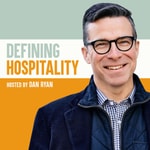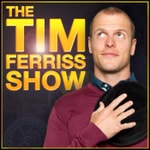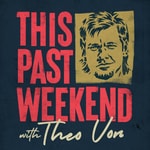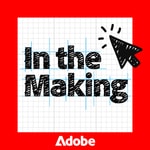The Irrational Mind | With Kristen Berman – Details, episodes & analysis
Podcast details
Technical and general information from the podcast's RSS feed.
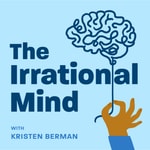
The Irrational Mind | With Kristen Berman
Kristen Berman | Irrational Labs
Frequency: 1 episode/48d. Total Eps: 29

Recent rankings
Latest chart positions across Apple Podcasts and Spotify rankings.
Apple Podcasts
🇬🇧 Great Britain - techNews
31/07/2025#96🇬🇧 Great Britain - techNews
30/07/2025#82🇬🇧 Great Britain - techNews
29/07/2025#66🇬🇧 Great Britain - techNews
28/07/2025#42🇬🇧 Great Britain - techNews
06/07/2025#98🇬🇧 Great Britain - techNews
05/07/2025#85🇬🇧 Great Britain - techNews
04/07/2025#70🇬🇧 Great Britain - techNews
03/07/2025#46🇺🇸 USA - techNews
09/06/2025#94🇺🇸 USA - techNews
08/06/2025#70
Spotify
No recent rankings available
Shared links between episodes and podcasts
Links found in episode descriptions and other podcasts that share them.
See all- https://www.onepeloton.com/
272 shares
- https://www.creditkarma.com/
45 shares
- https://www.yelp.com/
37 shares
- http://www.linkedin.com
29 shares
RSS feed quality and score
Technical evaluation of the podcast's RSS feed quality and structure.
See allScore global : 52%
Publication history
Monthly episode publishing history over the past years.
What design teams can learn from Headspace | Cal Thompson (VP of Product Design & Research, Headspace)
Season 2 · Episode 1
dimanche 8 décembre 2024 • Duration 47:35
Cal Thompson is the VP of Product Design & Research at Headspace, where they lead a team dedicated to creating user-centered designs that drive real-world impact. Their focus is to combine design practices with rigorous research to help users achieve their meditation goals. Before Headspace, Cal served as a Design Director at Fjord San Francisco. In this episode, we explore:
What key metric Headspace measures for active use
The small feature change that increased engagement
The one trick they use for copy-editing
What drives people to re-engage with Headspace
How pricing (free vs. paid) impacts user engagement
This episode is packed with practical takeaways for PMs and anyone interested in the psychology of habit creation.
Enjoy this episode? Rate it and leave a review. It really helps others find the podcast.
Learn more about Kristen and Irrational Labshere.
How Do Yelp Reviews Shape Our Choices?
Season 1 · Episode 21
mardi 31 mai 2022 • Duration 38:09
Trying something new is hard at the macro level. Yelp reviews reduce that uncertainty that comes with new things. But how do they help businesses achieve organic and meaningful reviews? In this episode, host Kristen Berman is joined by Akhil Kuduvalli Ramesh, VP of Consumer Product at Yelp. He explains why Yelp prefers quality over quantity when it comes to reviews and how your Yelp review creates community and helps new businesses. They also talk about high-frequency low-risk experience while taking a look at some studies and other companies’ strategies, like Spotify’s approximate nearest neighbor search. Stay tuned and learn the many features that are promoting human connection at Yelp!
Jump straight into:
(01:17) - Engineering behind a review: Reminders, thank you notes and opportune timing to enhance more reviews.
(07:42) - Why do people write reviews? The common denominators the most frequent Yelp contributors share.
(13:19) - Promoting human connection: The best hacks to make first reviews flow organically and be longer.
(16:57 - Understanding search processes’ verticals for different business categories in Yelp (and how they created the reorder button).
(26:15) - The perks of being a responsive business owner (and how Yelp facilitates clever questions to be answered by more than one person).
(32:41) - Looking for something wildly different than ice cream: On Yelp’s target diversification and the appearance of new kinds of experiences.
Episode resources
Connect with Akhil through LinkedIn
Thank you for listening to Science of Change podcast. Reach out to Kristen through LinkedIn and visit The Irrational Labs website for more information on behavioral science.
This show is presented by SetSail and produced by Kristen Berman and Studio Pod Media. The executive producer is Rachael Roberts. All episodes are written by Kristen Berman and Ying Lin with experts, script editing by Jack viewer. Special thanks to Lydia Trupe for fact checking and citations. Music and editing provided by nodalab.
Holiday Mini-sode: 3 Ways to Make Your New Year's Resolution Stick
Season 1 · Episode 12
mardi 28 décembre 2021 • Duration 05:13
The Science of Change host and behavior scientist Kristen Berman is back again to save you from another classic holiday blunder: not keeping your New Year's Resolution. In this mini-isode, Kristen breaks down three behavior science principles that will help make sure your resolution sticks in 2022. Hint: one might involve getting a furry friend. But the best resolution of all? Make sure you follow and like The Science of Change for all-new episodes starting this January.
Episode resources
Thank you for listening to The Science of Change. Reach out to Kristen through LinkedIn and visit The Irrational Labs website for more information on behavioral science.
This show is presented by SetSail and produced by Kristen Berman and Studio Pod Media. The executive producer is Rachel Roberts. All episodes are written by Jack Bueher. Music and editing provided by nodalab.
Holiday Mini-sode: How To Avoid These 3 Gift-Buying Mistakes
Season 1 · Episode 11
mercredi 15 décembre 2021 • Duration 03:29
The holidays are here and that means it’s the season for gift giving! But how can you make sure you’re giving the right gift this year? In this mini-sode, our host Kristen Berman uses behavior science to unwrap three common mistakes we make in exchanging gifts, as well as some tips on how to avoid them. Remember not all gifts are bought, sometimes we can put our creativity to work and think of something to give that will contribute to someone else's life in an unexpected way. Let's jump in!
Episode resources
Thank you for listening to The Science of Change. Reach out to Kristen through LinkedIn and visit The Irrational Labs website for more information on behavioral science.
This show is presented by SetSail and produced by Kristen Berman and Studio Pod Media. The executive producer is Rachel Roberts. All episodes are written by Jack Bueher. Music and editing provided by nodalab.
How Is PFF Changing the Game of Football?
Season 1 · Episode 11
mardi 16 novembre 2021 • Duration 43:01
Who said numbers ain’t fun? When it comes to football and sports in general, many fans try to develop a new way to connect with the game through analytics and predictions based on stats. Data research has become so important that it now determines how teams make decisions and how they operate as a whole, defining what their strategy is and even becoming the key to winning a championship. In this episode, host Kristen Berman talks with Eric Eager, VP of Research and Development at Pro Football Focus to discover the many ways in which they're changing the game of football with behavior science.
Jump straight into:
(01:27) - Get to know PFF: A football data collection and analysis firm for every single player in every single game that offers an entertainment platform.
(08:39) - Trust in the numbers: On math-based playbook strategies versus intuition, risk aversion, and omission bias.
(17:15) - Behavior and decisions made under pressure: What’s behind the mistakes of a quarterback and a coach?
(24:04) - How did the analytics revolution in sports start plus why it works so differently in football.
(28:01) - Exploring the many ways data has changed football teams’ draft and trade decisions and how that impacts their money cap.
(34:58) - Drawing up trick plays meant to deceive the other team and how that applies to markets and real-life decisions.
(38:37) - Home team advantage relevance: Discussing the fans’ role when it comes to predictions.
(41:31) - What’s going to change for football in the future? Determined positions and the use of algorithms.
Episode resources
Connect with Eric through LinkedIn
Thank you for listening to The Science of Change. Reach out to Kristen through LinkedIn and visit The Irrational Labs website for more information on behavioral science.
This show is presented by SetSail (follow on LinkedIn) and produced by Kristen Berman and Studio Pod Media. The executive producer is Rachel Roberts. All episodes are written by Jack Bueher. Music and editing provided by nodalab.
How Does LinkedIn Get You a Job?
Season 1 · Episode 10
mardi 9 novembre 2021 • Duration 44:18
What is the perfect job for you? In a world with thousands of companies and millions of job seekers, what’s the most efficient way of finding your dream job? In this episode of The Science of Change, our host Kristen Berman talks to Ada Yu, Director of Product Management at LinkedIn, to understand how this platform helps people and companies find the perfect match while mitigating bias, helping seekers apply for the right openings, and making the hiring processes much easier for everyone. Job sites are marketplaces that are evolving, what might have worked yesterday to help you stand out may not do the trick next year. Jump into this conversation and learn from Ada the state-of-the-art strategies for hiring and what the difficult task of applying for a job and signing a contract will look like in the near future.
Jump straight into:
(00:52) - Getting from search to hire: How LinkedIn helps job seekers and companies find the perfect match with present bias and stopping cues.
(08:32) - Diversity, inclusion and equity: How LinkedIn nudges diverse applicants and recruiters towards job equity.
(13:51) - “Open for work” & “Easy Apply”: LinkedIn’s response to the massive layout that hit during the COVID19 pandemic.
(17:45) - Cognitive overload and verified skills: Sorting applicants and job openings to showcase them in a digestible and truthful way.
(24:51) - Applying, stretching and handling rejection: LinkedIn’s strategies to increase your chance of getting a job that matches your skills.
(29:46) - Reshaping the workforce: Some changes we have seen in the professional world in the last years of online recruitment.
(34:14) - Dip a toe and step out!: Empowering seekers to identify companies committed to diversity and reaching out to new networks.
(44:07) - The future of the job market: What is market signaling and what it’s going to take to stand out in the future.
Episode resources
Additional reading and citations.
Connect with Ada through LinkedIn
Thank you for listening to The Science of Change. Reach out to Kristen through LinkedIn and visit The Irrational Labs website for more information on behavioral science.
This show is presented by SetSail (follow on LinkedIn) and produced by Kristen Berman and Studio Pod Media. The executive producer is Rachel Roberts. All episodes are written by Jack Bueher. Music and editing provided by nodalab.
How Does WW Help Us Lose Weight?
Season 1 · Episode 7
mardi 2 novembre 2021 • Duration 30:47
Americans have a complicated relationship with diets, and obesity is a global epidemic rapidly becoming the single most preventable cause of costly chronic diseases. To talk about the difficulties of weight loss and how to overcome them, our host Kristen Berman talks to Julie O’Brien, behavioral scientist and former head of Applied Behavioral Science at WW. There are a ton of diets and weight loss programs out there, so does Weight Watchers actually work? What strategies have they developed to track new habits and break old ones? Tune in and learn Weight Watchers tactics to encourage people to eat better and stay motivated in the very difficult path of losing weight.
Jump straight into:
(00:50) - How Weight Watchers fights Americans’ complicated relationship with diets: The best way to introduce new habits and break existing ones.
(05:17) - Thinking about balance, moderation, and expectations: How to teach people awareness and build an identity around healthy habits.
(08:51) - Micro-habit changes and making-one time decisions: What triggers people to join WW and how do they keep motivation?
(15:52) - Some factors that make people stay longer on a diet: The highs and lows, and the challenge of tracking the path of weight loss.
(21:11) - Set goals successfully and take action!: Figuring out your barriers and making a plan to overcome them.
(24:07) - How does the WW point system work?: A simpler way to interpret a nutrition label to help you eat better.
Episode resources
Additional reading and citations
Connect with Julie through LinkedIn
Thank you for listening to The Science of Change. Reach out to Kristen through LinkedIn and visit The Irrational Labs website for more information on behavioral science.
This show is presented by SetSail (follow on LinkedIn) and produced by Kristen Berman and Studio Pod Media. The executive producer is Rachael Roberts. All episodes are written by Jack Bueher. Music and editing provided by nodalab.
Can Credit Karma Help Us Manage Our Money?
Season 1 · Episode 6
mardi 26 octobre 2021 • Duration 41:52
Behavior Change is hard, but if there is an area even harder to master it’s personal finances. Things like saving and building a credit score are far from our favorite activities. In this episode of The Science of Change, our host Kristen Berman talks to Product Manager and the Growth Lead for Credit Karma Money, Kyle Thibaut. Kyle and Kristen talk about getting people to save and spend, habit formation, removing friction, and overall changing people’s relationship with money; all leading to Credit Karma’s ultimate goal: automate our finances for us. Hop in and learn about this company’s behavioral science and its expertise in defaulting people into good financial behavior.
Jump straight into:
(01:10) - How much do you have in your emergency fund?: Credit Karma’s start as a savings account service.
(10:51) - Instant Karma!: Getting people to spend money and sign up for their service with prize-linked spending.
(16:49) - Sorting old obstacles for debit card users: Removing friction, setting new users up quickly, and adding digital options to the user experience.
(23:13) - How paternalistic should an app be?: Helping people save money and have a great credit score.
(27:36) - Multi-step flows vs. single page forms: What works better for Credit Karma data collection.
(30:56) - What is your job?: How ranking by popularity can decrease time and energy spent making choices.
(35:03) - What’s next for Credit Karma?: The future of money, FinTechs, and how to make financial products for today and tomorrow.
Episode resources
Additional reading and citations
Connect with Kyle through Twitter
Thank you for listening to The Science of Change. Reach out to Kristen through LinkedIn and visit The Irrational Labs website for more information on behavioral science.
This show is presented by SetSail (follow on LinkedIn) and produced by Kristen Berman and Studio Pod Media. The executive producer is Rachael Roberts. All episodes are written by Jack Bueher. Music and editing provided by nodalab.
How Does Sleepio Put Us To Sleep?
Season 1 · Episode 5
mardi 19 octobre 2021 • Duration 40:07
In this episode of Science of Change, our host Kristen Berman talks to one of the sharpest applied behavioral scientists out there and the Chief Product Officer at Big Health, Kelvin Kwong. The popular sleep app Sleepio and the anxiety therapeutic app Daylight are some of Big Health’s products in the rising market of health apps. How have they managed to join behavioral science and clinical psychology methods into an online service? Kelvin and Kristen go deep on the science, the methods, and the effects that constitute Big Health’s success; from getting people to learn new strategies to assessing their improvement and establishing commitment. Join this conversation and learn about the science behind your anxiety or sleep assistance mobile app.
Jump straight into:
01:12 - Cognitive Behavioral Therapy and some of its counterintuitive but very efficient techniques: How sleep restriction works as a therapy for insomnia.
08:13 - Precommitment and dealing with failure: How Sleepio knows about your readiness to change and makes an assessment of your level of commitment.
11:51 - The Hurricane Effect and the optimism bias: What is the perfect moment to introduce people to useful techniques? Before or after a crisis?
16:00 - Big Health’s focus on getting you better: Retention, follow-through, and getting users successfully to remission.
21:20 - What are the metrics that assess well-being?: How Big Health tailors your program and assesses your outcomes through a highly precise clinical survey.
24:27 - Behavioral science rapid-fire questions: On failing experiments, the use of scores, and why we often rationalize symptoms of mental illness.
28:31 - Combining clinical experience with behavioral science expertise: Is it possible to build a real “therapeutic alliance” through an app?
30:33 - The importance of uniqueness in psychology and the Barnum Effect: How Big Health understands your drivers and personalizes your experience using technology.
33:46 - On the future of digital mental health: Making the apps more efficient and intelligent based on people’s digital behavior.
Episode resources
Additional reading and citations
Connect with Kelvin through LinkedIn
Thank you for listening to The Science of Change. Reach out to Kristen through LinkedIn and visit The Irrational Labs website for more information on behavioral science.
This show is presented by SetSail (follow on LinkedIn) and produced by Kristen Berman and Studio Pod Media. The executive producer is Rachael Roberts. All episodes are written by Jack Bueher. Music and editing provided by
How Does Duolingo Get Us To Learn a Language?
Season 1 · Episode 3
mardi 12 octobre 2021 • Duration 49:03
In this second episode of The Science of Change, our host Kristen Berman dives into one of the most successful apps for language learning: Duolingo. Kristen sits with Duolingo’s Head of Product Management Cem Kansu to talk about the ways this amazing app keeps people engaged and learning. From their daily streaks and batches, all the way to the length and difficulty of each exercise, Kristen and Cem unpack the behavioral science behind Duolingo App. Listen now and learn from the challenges, Cem and his team have managed to successfully solve in their commitment to education. Have you reached your daily goal?
Jump straight into:
(01:09) - How Duolingo keeps its users motivated: Reducing barriers and keeping streaks without losing the focus on learning.
(05:11) - The sweet spot for creating a daily habit: How Duolingo uses freezes and repairs to keep users engaged in a gamified language-learning method.
(14:59) - Extrinsic vs. Intrinsic motivation: Why Duolingo asks you how much you want to practice every day.
(19:54) - AB Testing: The best tactics to get users to upgrade their subscription and try their Duolingo Plus free week.
(24:57) - Running out of lives?: How Duolingo makes you practice active learning by tracking your errors and making each answer count.
(30:31) - The theory of learning: Levels, skills, and how to get people to dive into a new level of difficulty.
(41:56) - Measuring for today and tomorrow: How Duolingo measures learning and what will be the future of learning a language on mobile.
Episode resources
Additional reading, resources and literature review on language learninng
Connect with Cem through LinkedIn
Thank you for listening to The Science of Change. Reach out to Kristen through LinkedIn and visit The Irrational Labs website for more information on behavioral science.
This show is presented by SetSail (follow on LinkedIn) and produced by Kristen Berman and Studio Pod Media. The executive producer is Rachael Roberts. All episodes are written by Jack Bueher. Music and editing provided by nodalab.

